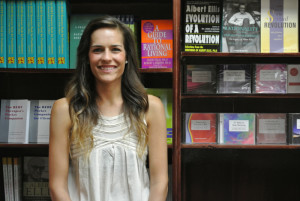by Shannon O’Neill, M.A.
Remember the nursery rhyme, “Sticks and stones may break my bones but words will never hurt me”? The writer was on to something with the formation of this rational statement. Words are just words until interpretation and beliefs are placed upon them. For example, an individual may say something offensive to another and the thought, “That was a rude comment” forms. This thought is not necessarily troublesome until the irrational belief, “They should not be rude to me” is linked and emotional distress is created. Hard to believe? Imagine the opposite. How many times have you parroted a rational response (e.g., “There is no rule that they must be polite”), attempting to free yourself of emotional discomfort but no relief came? This is because rational responses are also just words until interpretation and beliefs are placed upon them as well.
It is well known that an individual’s irrational belief or reaction to a thought can lead to heightened emotional/physical distress. Mindfulness techniques can help reduce and eventually prevent these unhelpful interpretations or criticisms from accompanying the thought. Through the use of metacognitive awareness, we have the ability to examine our thoughts without placing judgment on them. More specifically, there is potential to identify thoughts as just that, thoughts and nothing more.
Through metacognitive awareness, one can begin to identify and accept one’s thinking. This does not mean you must surrender to your current thinking or alter your thoughts in order to like the external event. However, acceptance does include acknowledging the presence of a thought in order to become more compassionate towards it. For example, using metacognitive awareness an individual is able to acknowledge their thought (e.g., “That was a rude comment”); however, the individual does not place judgment on the thought and understands that an unhealthy, dysfunctional reaction is not necessary. The sooner we can acknowledge and accept our present thoughts, the sooner we can work towards discovering alternatives.
REBT teaches us that we are responsible for our thoughts, emotions, and behaviors. No matter what the external event is, we have the power to control our internal and external reactions. Take responsibility for your thinking and alternative perceptions, feelings, and behaviors will naturally follow.
“If there is no enemy within, the enemy outside can do us no harm.”
-African Proverb

